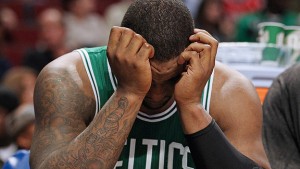 Athletes are professionals who are at a much higher risk of sustaining brain injuries than others. Particularly in rough contact sports such as football and rugby, athletes can be prone to head injuries that cause permanent or temporary brain damage, altering how the athlete perceives and interacts with the world around them. This is a very important consideration to an athlete’s mental health considering that they are susceptible to losing brain function, and in so doing, suffering grief at the loss of their brain function.
Athletes are professionals who are at a much higher risk of sustaining brain injuries than others. Particularly in rough contact sports such as football and rugby, athletes can be prone to head injuries that cause permanent or temporary brain damage, altering how the athlete perceives and interacts with the world around them. This is a very important consideration to an athlete’s mental health considering that they are susceptible to losing brain function, and in so doing, suffering grief at the loss of their brain function.
When an athlete experiences a head injury and brain damage is the consequence of it, the athlete will have to adjust to life with lower brain function. This means lower cognition, less clarity and/or the inability to process certain pieces of information. Brain damage happens to many people who go through accidents, and it is known to be one of the hardest conditions to live with. Understanding and acting on certain things is changed forever. The individual is forced to relearn how to do a number of basic things and relearn processes that are second nature to others. They need to adjust their lives around their condition and live with the knowledge that they are not as free and flexible as they used to be.
The emotional hardship that an athlete goes through when they lose brain function is debilitating. Most people who sustain brain injury have a memory of how they used to be able to do things and the difficulty of coping with their personal loss is immense. Many experience incredible frustration at the inability to function like they used to. It is not uncommon for a person to fall into depression over their brain injury because of how hard coping with it can be. Athletes are rugged, independent people who are accustomed to fighting their own battles and coming out on top. Some manage brain injury gracefully while others go through extreme devastation over it, significantly lowering their mental health.